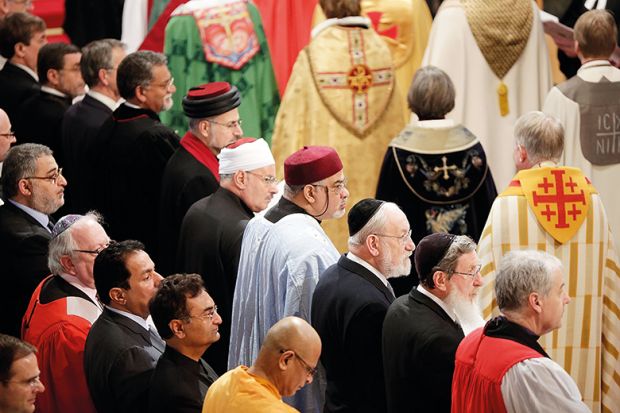The author of this book is a law professor at Boston University. He is at once Jewish and, if not quite atheistic, sceptical. Here he is writing about the current place of religion in public life.
As an American who has lived for decades in the UK, I have long come to see the firm differences between the two countries. Americans pride themselves on the separation of church and state. There is no state religion. The First Amendment to the US Constitution contains what is called the Establishment Clause: “Congress shall make no law respecting an establishment of religion or prohibiting the free exercise thereof.”
On the one hand, this statement, which holds for government at any level, prohibits the establishment of a public religion. It prohibits the government from establishing a single religion for all, let alone requiring the worship of that religion. On the other hand, the clause permits the practice of other religions, not just of Christianity or even of just one branch of Christianity.
The UK is very different. There is a state religion: Anglicanism. The monarch is the head of the national church. Only in the past few centuries have non-Christians been allowed to serve in Parliament. Public universities have chaplains, and almost all UK universities harbour departments of Christianity, with other religions either excluded or, as at Aberdeen, marginalised.
At the same time, the United States has never adhered absolutely to the church-state separation. In colonial days there were several states that barred Jews from holding office. The national government has always appointed Christian chaplains in both houses of Congress. Starting only in 1956, US currency has borne the line “In God We Trust”. The inaugural addresses of US presidents always invoke God. Witnesses in court must swear on the Bible. Americans consider theirs a Christian nation.
Wexler offers no history of religion in America. Instead, he focuses on recent decades. Negatively, the government has permitted more and more involvement of Christianity in what he calls “public spaces”, such as monuments, meeting houses and funding. The line between church and state is ever blurrier.
Positively, the government has allowed the participation in public life of “minorities”: Wiccans, atheists, Jews, Muslims and, most despised of all, Satanists. Wexler documents case after case – notably, locales where minorities seek to give opening addresses at public meetings.
He does not concern himself with deeper issues, such as the religious roots of America’s seemingly secular culture. He does not consider the ever wider conception of religion anywhere as nationalism or ideology. He limits himself to presenting the negative and positive trends in the state of traditional religion in America. Overall, the US, in contrast to the UK, is becoming more religious – a trend that he bemoans. Altogether, this is a most lucid and readable book.
Robert A. Segal is professorial research fellow at the University of Vienna, and sixth century chair in religious studies at the University of Aberdeen. He is also the editor of The Wiley Blackwell Companion to the Study of Religion (2020).
Our Non-Christian Nation: How Atheists, Satanists, Pagans, and Others Are Demanding Their Rightful Place in Public Life
By Jay Wexler
Stanford University Press
216pp, £18.99
ISBN 9780804798990
Published 11 June 2019
Register to continue
Why register?
- Registration is free and only takes a moment
- Once registered, you can read 3 articles a month
- Sign up for our newsletter
Subscribe
Or subscribe for unlimited access to:
- Unlimited access to news, views, insights & reviews
- Digital editions
- Digital access to THE’s university and college rankings analysis
Already registered or a current subscriber? Login







